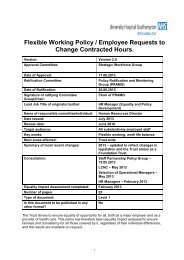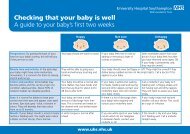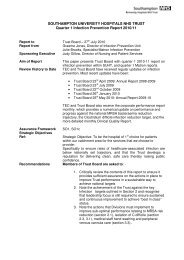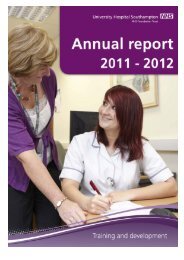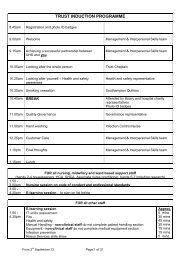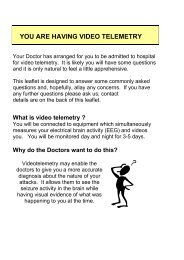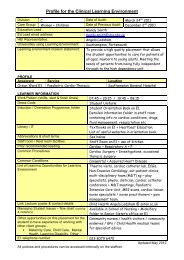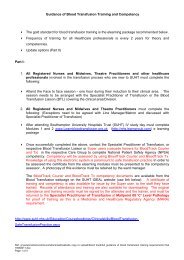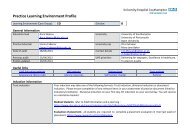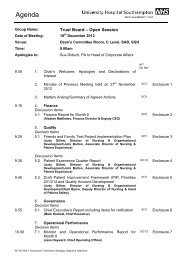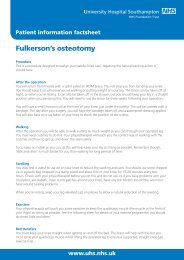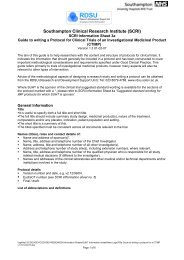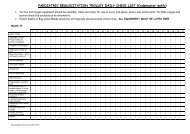Anxiety and breathing difficulties
Anxiety and breathing difficulties
Anxiety and breathing difficulties
You also want an ePaper? Increase the reach of your titles
YUMPU automatically turns print PDFs into web optimized ePapers that Google loves.
Patient information factsheetTriggerFor example, pushing yourself to go for a long walk <strong>and</strong> starting to feel more short of breathFeeling anxiousPanicBodyBreathing becomes rapid<strong>and</strong> chest becomes tightThoughts“I can’t breathe”This is what we call a vicious circle as the more anxious people get, the more they feel as if they cannot breathe.Breathing problems increase<strong>Anxiety</strong> increasesYou can break this cycle <strong>and</strong> reduce your anxiety by learning what helps you to cope or manage your anxiety.Learning to breathe properly can help with the panic attacks <strong>and</strong> reduce hyperventilating.How to cope with <strong>and</strong> manage anxietyGetting to know your anxiety<strong>Anxiety</strong> affects people in different ways. You need to underst<strong>and</strong> your own anxiety <strong>and</strong> then you can usedifferent techniques to help manage it. Initially, it is useful to ask yourself the following questions:• What things or situations trigger my anxiety? For example, it might be a physical sensation, or doingexercise, or thinking “is my <strong>breathing</strong> getting worse?”• What are my feelings <strong>and</strong> thoughts when I am anxious?• What do I tend to do when I am anxious?• What helps me to cope or lessen my anxiety?It might also be helpful to keep a record of when you are feeling anxious <strong>and</strong> make a note of how you feel,think <strong>and</strong> what you do in the situation. Once you have started to notice what invites anxiety in for you orlessens it, here are some ideas that might help.www.uhs.nhs.uk



